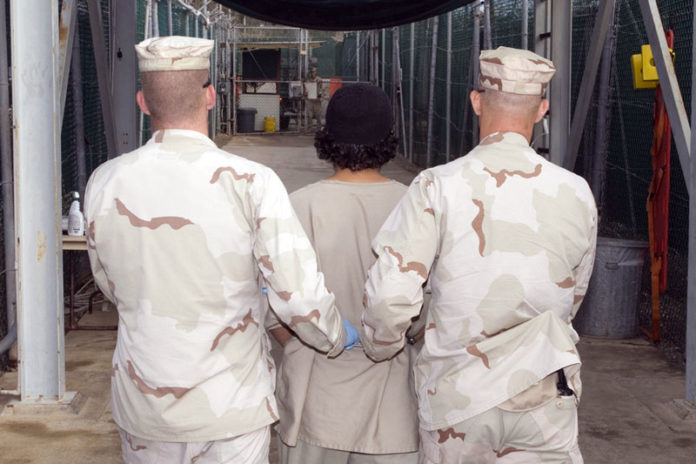Sgt. Bowe R. Bergdahl, who went missing from his Army post in Afghanistan in 2009 and was captured by the Taliban before being released in a prisoner exchange in May 31, 2014 has been charged with desertion and with misbehavior before the enemy according to U.S. Army Col. Daniel King reading from a written statement.
Upon his return, Sergeant Bergdahl was assigned to administrative duties at Fort Sam Houston, Texas in June, 2014 pending the outcome of an Army investigation into the facts surrounding the circumstances of his absence from his post and his subsequent capture by Taliban forces.
Sergeant Bergdahl’s freedom from his captors came in exchange for five high-value Taliban prisoners held at Guantánamo Bay – a move that ignited bipartisan controversy, in part, because President Obama did not alert Congress to the prisoner swap in advance.
Bergdahl’s case has also stirred anger among members of his unit and the American people at large who believe the lives of military members were lost in the search to find and rescue him from his Taliban captors.
According to a report published in the Army Times, Bergdahl, will face an Article 32 preliminary hearing to determine if there is enough evidence to merit a court-martial – a procedure often compared to a civilian grand jury inquiry.
Gen. Mark Milley, commanding general of U.S. Army Forces Command, made the charging decision “after a review of the facts and findings from an extensive Army investigation to determine what, if any, actions should be taken against Bergdahl.”
Bergdahl is charged with:
• One count of desertion with intent to shirk important or hazardous duty.
• One count of misbehavior before the enemy by endangering the safety of a command, unit or place.
Once the Article 32 is completed, the report will be forwarded to Gen. Milley, who is the general court-martial convening authority. In that role, Milley can take one of three actions. He can take no action against Bergdahl, convene special court-martial or a general court-martial.
According to MilitaryLawyers.com, “a special court-martial is often likened to a civilian misdemeanor court action since confinement is limited to one year”… “while a general-court martial is similar to a felony civilian criminal trial.”
“The desertion charge, which falls under Article 85 of the Uniformed Code of Military Justice, carries a maximum punishment of five years confinement, a dishonorable discharge, reduction to the rank of E-1, forfeiture of all pay and allowances.”
“The misbehavior before the enemy charge, which falls under Article 99 of the UCMJ, carries a maximum punishment of confinement for life as well as a dishonorable discharge, reduction in rank to E-1, and forfeiture of pay and allowances.”
Col. King said the Army’s investigation is now being treated as potential evidence in the upcoming Article 32.































